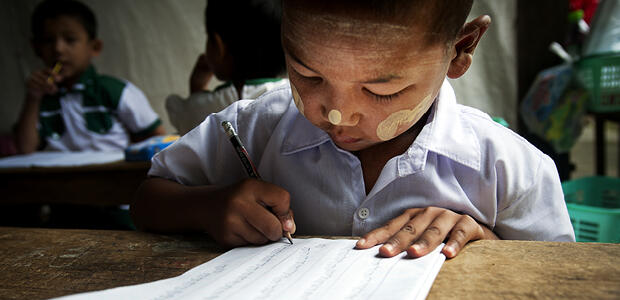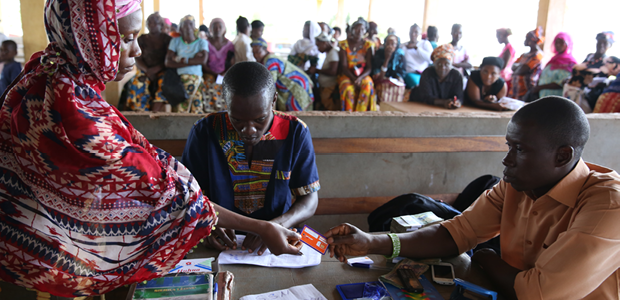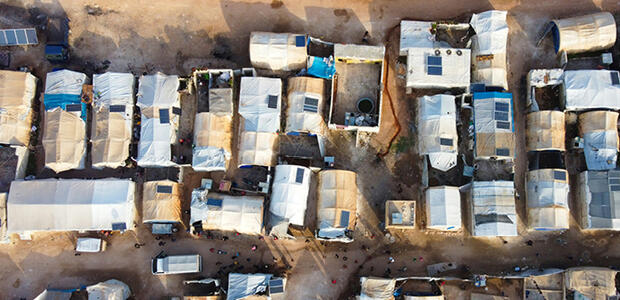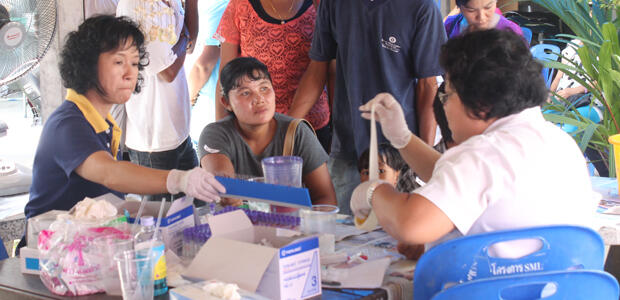Working Paper
Choices for spending government revenue
This paper examines a broad range of opportunities for addressing the pressing human development needs of low-income countries by using new oil, gas, and mineral discoveries. It assesses how much of an impact can be made on the funding gaps for...
Working Paper
Quantifying the impacts of expanding social protection on efficiency and equity
A large informal sector is a challenge for developing countries building up social protection systems. Expanding social safety nets reduces poverty, but financing them can increase the tax burden, potentially reducing availability of formal sector...
Presentation
Social protection in development
Improving the social protection of the poor and vulnerable is a global concern and co-operation is needed at all levels. As part of efforts to build dialogue and to better support social protection in developing countries, Jukka Pirttilä presented on...
Tue, 17 January 2017
–
Wed, 18 January 2017
German Federal Ministry for Economic Cooperation and Development,
Bonn,
Germany
Past event
Policy seminar
Inequality and Development – trends and policies
Powerpoint presentation UNU-WIDER policy seminar on “Inequality and Development - trends and policies” at the Ministry for Foreign Affairs of Finland. The seminar will look at current trends in inequality, the relationship between development and...
Fri, 26 September 2014
Valopiha, Ministry for Foreign Affairs of Finland,
Katajanokanlaituri 3,
Helsinki,
Finland
Past event
Working Paper
Worker retraining and transfer payments
We conduct an incentive-theoretical analysis of political economy considerations in the design of social protection programmes in developing countries to accompany economic reforms. We focus on two aspects of social protection—the provision of...
About
Presentation - AL20
Martin Ravallion’s WIDER Annual Lecture focused on the economic and political issues surrounding the use of direct interventions, such as cash transfers and in kind contributions, against poverty. He highlighted two key lessons that are important for...
News
Director Kunal Sen contributes to blog on taxation in developing countries
The capability to raise revenues from taxes – often called fiscal capacity – is a crucial aspect for the functioning of every state, particularly in developing countries. They need higher revenues to invest in a number of economic and social areas...
News
Press release - AL20
United Nations University World Institute for Development Economics Research (UNU-WIDER) in partnership with the Stockholm Institute of Transition Economics (SITE) will host the WIDER Annual Lecture 20 at the Stockholm School of Economics on 23 March 2016. The lecture will be delivered by Martin Ravallion, a leading economist in the study of poverty and policies for fighting it.
Working Paper
Fiscal capacity and social protection expenditure in developing nations
There is scant analysis on the causal relationship between fiscal capacity and social protection expenditure in the developing world. We investigate the causal relationship between fiscal capacity of the state and social protection expenditure...
Working Paper
Building a conservative welfare state in Botswana
Botswana’s welfare state is both a parsimonious laggard in comparison with some other middle-income countries in Africa (such as Mauritius and South Africa) and extensive (in comparison with its low-income neighbours to the north and east). Coverage...
Working Paper
Poverty, changing political regimes, and social cash transfers in Zimbabwe, 1980–2016
Since 2000, Zimbabwe has been under some pressure to provide more fully for its children. It is not clear whether child poverty has worsened, although AIDS, drought, and economic mismanagement have all compromised poverty reduction. In any case...
Working Paper
Social protection, electoral competition, and political branding in Malawi
Competitive elections in many parts of Africa generate powerful incentives to presidential candidates (and to a lesser extent political parties) to brand themselves in ways that transcend regional or ethnic loyalties. In Malawi, Joyce Banda—President...
Project meeting
 Cash Plus final meeting
Cash Plus final meeting
Wed, 28 July 2021
Lusaka,
Zambia
Past event
Policy seminar
 Cash Plus dissemination event
Cash Plus dissemination event
Tue, 5 October 2021
Hotel Southern Sun Ridgeway,
Lusaka, online,
Zambia
Past event
Presentation
Roosa Lambin and Milla Nyyssölä on social protection and gender in Tanzania
On 29 September 2021 UNU-WIDER researchers Roosa Lambin and Milla Nyyssölä give a presentation at the weekly online seminar of the Labour Institute for Economic Research. The topic of their presentation is Social protection and gender in Tanzania -...
Wed, 29 September 2021
online,
Finland
Past event
Annual Lecture
 WIDER Annual Lecture 20 - Direct interventions against poverty in poor places
WIDER Annual Lecture 20 - Direct interventions against poverty in poor places
Wed, 23 March 2016
Stockholm School of Economics, Aula,
Sveavägen 65 (entrance from Bertil Ohlins gata),
Stockholm,
Sweden
Past event
About
Contributors - AL20
Short biographies of those who contributed to the event.
Video
Webcast - AL20
View the WIDER Annual Lecture by Martin Ravallion on Direct interventions against poverty in poor places.
Policy seminar
 Distributional Effects of the COVID-19 Pandemic in Zambia
Distributional Effects of the COVID-19 Pandemic in Zambia
Thu, 14 October 2021
Sarovar Premiere Hotel, online,
Lusaka,
Zambia
Past event
Presentation
SOUTHMOD work presented at the Mozambique Social Protection Week
The Ministry of Gender, Child and Social Action (MGCAS) organises a Social Protection theme week in Mozambique 11-15 October 2021. During the week, on 15 October, The Mozambican Ministry of Economy and Finance (MEF) with Internation Labour...
Fri, 15 October 2021
Radisson Blu,
Mozambique
Past event
Presentation
Roosa Lambin and Milla Nyyssölä on social policy trajectories and women in Tanzania
The virtual conference Social Policy in Africa is organized 22-24 November 2021 by University of South Africa (UNISA) in the City of Tshwane in South Africa. On 22 November researchers Roosa Lambin and Milla Nyyssölä give a presentation in the...
Mon, 22 November 2021
online,
South Africa
Past event
Workshop
 Author workshop on tax-benefit systems and crisis
Author workshop on tax-benefit systems and crisis
Mon, 6 June 2022
–
Wed, 8 June 2022
Online,
Finland
Past event
Presentation
SOUTHMOD presented at Tampere University
The Global Health and Social Policy research unit of Tampere university organized an in person The Futures of Global Social Policy Workshop on 30 May 2022. UNU-WIDER Research Associate Jesse Lastunen and Research Assistant Enrico Nichelatti presented...
Mon, 30 May 2022
Tampere,
Finland
Past event
Presentation
MOZMOD work presented at the Mozambique Social Protection Week
The Ministry of Gender, Child and Social Action (MGCAS) organises a Social Protection theme week in Mozambique 21-27 November 2022. During the week, on 25 November, The Mozambican Ministry of Economy and Finance (MEF) with Internation Labour...
Fri, 25 November 2022
Centro de Conferencias Joaquim Chissano,
Maputo,
Mozambique
Past event

 Join the network
Join the network














